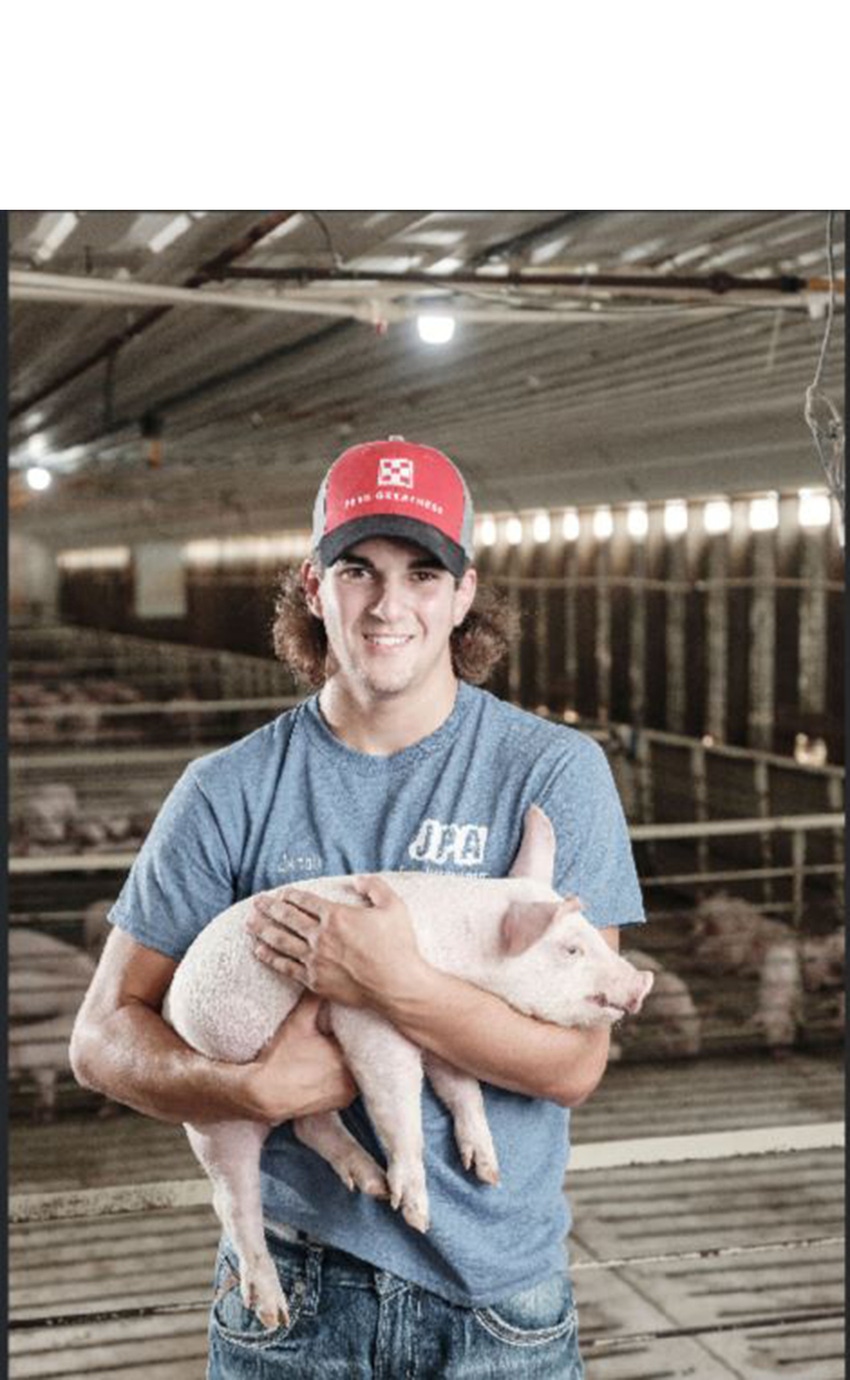Farm work is ‘diverse’ source of education
The variety of tasks can be eye-opening for young adults who didn’t grow up on a farm.
December 18, 2017

By Ann Marie Ames
When he was a kid, Jacob Wolf never wondered what he would be when he grew up. He knew he would follow in his grandpa Steve Mace’s footsteps and sell Pioneer seed corn. His mind was made up long before he started working summers for the Frye family, who grow corn and finish hogs near Independence in eastern Iowa.
“When I started working here, I didn’t even know they had hogs,” says Wolf, 19. “One day I had to help my coworker do chores, and I liked it. I really liked the pigs. I asked my manager (Jay Frye) if he could teach me how to do it, and he started walking me through the barn, pointing things out.”
Four years later, the Fryes’ wean-to-finish barns are 19-year-old Wolf’s pride and joy. Currently, he runs one of the Fryes’ two sites — managing 3,600 pigs in three barns just down the road from the Frye family farm. When he’s not in the barn, Wolf attends Kirkwood Community College in Cedar Rapids where he plans to earn an associate degree in swine production management. When he graduates, he’ll take on the Fryes’ second site with 4,800 pigs, two miles away.
Wolf is one of a handful of local high school students whose agricultural careers took root at the Frye farm, says co-owner Jay Frye.
“We almost always hire a couple high school kids in the summers,” Frye says. “We’re a farm family that does everything ourselves if it’s possible, and we can always use the help. Plus, it’s fun for us to have young people around. It lightens the mood, and it’s a pleasure to see what they’re interested in. It’s rewarding to see their interests change as they learn new things.”
The variety of tasks can be eye-opening for young adults who didn’t grow up on a farm, Frye says.
“Jacob has told me he can’t think of anywhere else he could have worked with more diverse work and more things for him to learn how to do,” Frye says. “He has realized working on a farm isn’t just planting corn and feeding pigs. It can be what you want it to be.”
Frye saw early on Wolf was a good fit in the barn, so he tried to “keep his mouth shut” last year when Wolf was making plans to take agribusiness classes and sell seed corn. Frye knew how strongly Wolf felt about following his grandpa’s career path, but he finally asked if Wolf wouldn’t at least like taking some livestock classes.
It turned out to be a good idea.
Another one of Wolf’s coaches is Pat Donnelly, a Purina Animal Nutrition livestock production specialist at B&B Farm Store in Jesup, Iowa. Donnelly works with Frye and Wolf to manage their grow-finish nutrition program.
“When we started this journey, Jay showed Jacob the basics of managing a barn and helped him establish a routine. We knew we would make changes as we went along and Jacob got a handle on it,” Donnelly says. “He’s pretty self-sufficient now. Mostly, I make suggestions on how he sets things up. Or, if I walk through the barn and something catches my eye, I’ll shoot him a text to give him a heads up.”
The learning goes both ways, Donnelly says.
“As farmers, we’re all entrepreneurial in our thought processes,” Donnelly says. “We might do something the same way for 10 years and then get an idea to try it a different way. We try it and find it’s either a success or a failure. Then we tell people about it. We share ideas and tell them to take them and run. I’ve learned a lot of little things from guys out in the field, and I think I’ve taught them, too. It’s how farm work gets done. We’re all in this battle together.”
Ames works for Filament in Madison, Wis. She can be reached at [email protected].
You May Also Like



